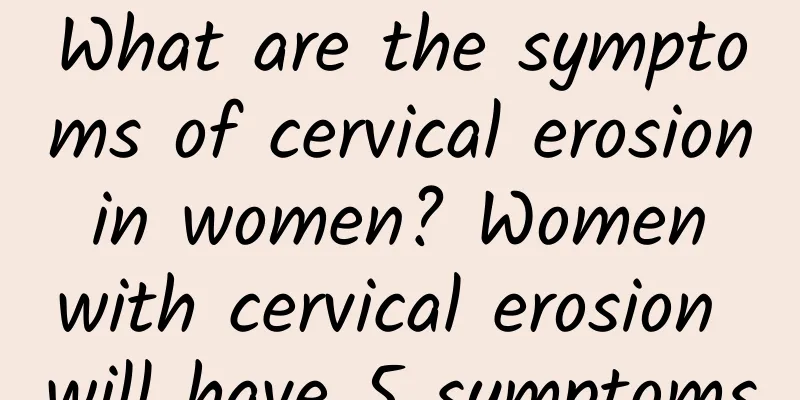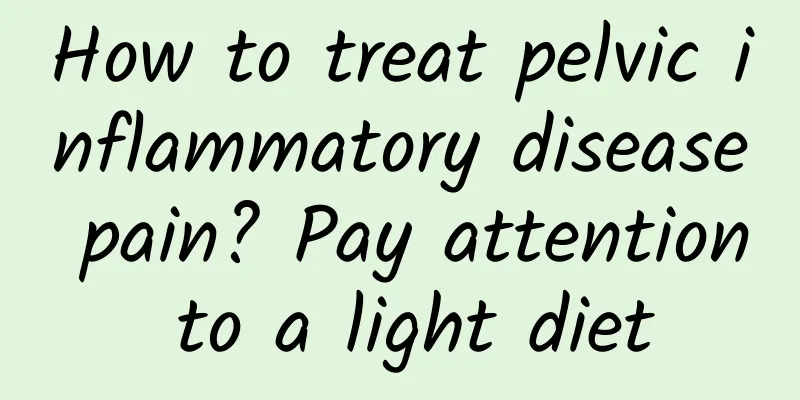What lifestyle habits cause uterine fibroids? What are the things that easily lead to uterine fibroids?

|
What lifestyle habits cause uterine fibroids? What are the causes of uterine fibroids? Uterine fibroids are common benign tumors that occur mostly in women of childbearing age. Although scientists have not yet found the specific cause, some lifestyle habits and factors are believed to be related to the occurrence of uterine fibroids. In this article, we will explore some lifestyle habits that may cause uterine fibroids and the factors that easily lead to their occurrence. 1. Eating habits. Eating habits are an important factor leading to uterine fibroids. Eating foods high in fat, cholesterol, protein, and fiber will increase the risk of uterine fibroids. Studies have shown that consuming too much saturated fatty acids can lead to hormone imbalance, which is related to the occurrence of uterine fibroids. Therefore, we need to arrange our diet structure reasonably, increase the intake of vegetables, fruits, and whole grains, and reduce the intake of baked and fried foods. 2. Lifestyle. An unhealthy lifestyle is also associated with the occurrence of uterine fibroids. Long periods of sitting, lack of exercise, and lack of adequate rest are all factors that lead to hormonal imbalance. These factors may promote the growth of uterine fibroids. Therefore, actively participating in physical exercise, maintaining a good work and rest schedule, and avoiding long periods of sitting are very important for preventing the occurrence of uterine fibroids. 3. Stress and emotional factors. Long-term mental stress and emotional fluctuations have a great impact on women's endocrine system, which is also a factor leading to uterine fibroids. Stress can trigger abnormal hormone secretion, thereby interfering with the balance of estrogen and progesterone. This is very unfavorable to the occurrence and growth of uterine fibroids. Therefore, we should learn to effectively deal with stress and maintain a good mental state, which can be achieved through exercise, meditation, reading or seeking psychological counseling. 4. Abuse of hormone drugs. Long-term use of hormone-containing drugs, such as hormonal contraceptives or replacement therapies, may increase the risk of uterine fibroids. The hormones in these drugs can interfere with the hormone balance in women's bodies, thereby indirectly promoting the occurrence and growth of uterine fibroids. Therefore, when using hormone drugs, you should follow the doctor's advice and use them in moderation. In terms of preventing uterine fibroids, it is very important to adjust your lifestyle appropriately. To do this, we need to make an effort and maintain a good lifestyle. Of course, there are still many other factors that may lead to the occurrence of uterine fibroids, such as genetic factors and age, so timely physical examinations and regular gynecological examinations are also important means of preventing and early detection of uterine fibroids. In summary, what kind of living habits are likely to cause uterine fibroids? We can start from eating habits, lifestyle, stress and emotional factors, and the abuse of hormonal drugs. By reasonably adjusting these living habits and factors, we can effectively reduce the risk of uterine fibroids and thus maintain women's health. |
>>: What medicine can cure uterine fibroids? What medicine is effective for uterine fibroids?
Recommend
Why is menopause difficult to cure?
For every woman, the transition from adolescence ...
Good care methods for women with irregular menstruation
Many women will panic when they have irregular me...
Does mild cervical erosion affect pregnancy?
Does mild cervical erosion affect pregnancy? 1. C...
Treatment of ovarian cysts
Ovarian cyst is a cystic structure formed inside ...
How to treat memory loss and brain aging? Professor Wang Jinkun: Three must-eat foods to improve memory
Always forgetting things and can’t find them? Is ...
Cervical erosion can not eat those foods
You may be familiar with the term cervical erosio...
The key to treating dysmenorrhea is to find the cause
The cause of dysmenorrhea is very important in cl...
Ectopic pregnancy can also be treated conservatively
Li Xiang is 30 years old this year. She usually h...
Which hospital is good for treating chocolate cysts?
Where is the best hospital for the treatment of c...
What is the normal thickness of the endometrium?
The endometrium is a layer of tissue inside the u...
Which is better, surgical abortion or medical abortion?
No matter what method of abortion is used, the pu...
What causes multiple uterine fibroids? What are the hazards of multiple uterine fibroids?
Uterine fibroids are divided into two types: sing...
Is the ketogenic diet suitable for you? Medical doctor reveals: 7 advantages and disadvantages of ketogenic diet
"If you eat the wrong things, you will get s...
What is delayed menstruation and early menstruation? Which is more terrible?
The female menstrual cycle is about 28 to 30 days...
Several important nursing points for ectopic pregnancy
Scientific care for ectopic pregnancy is very imp...









